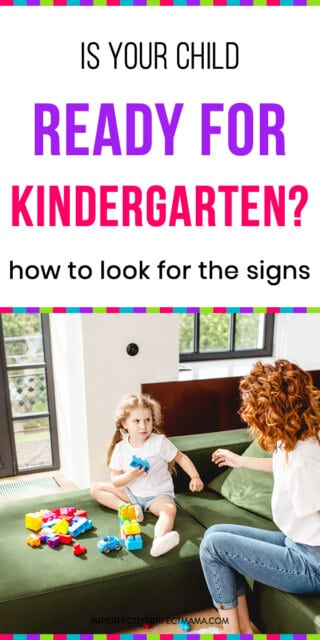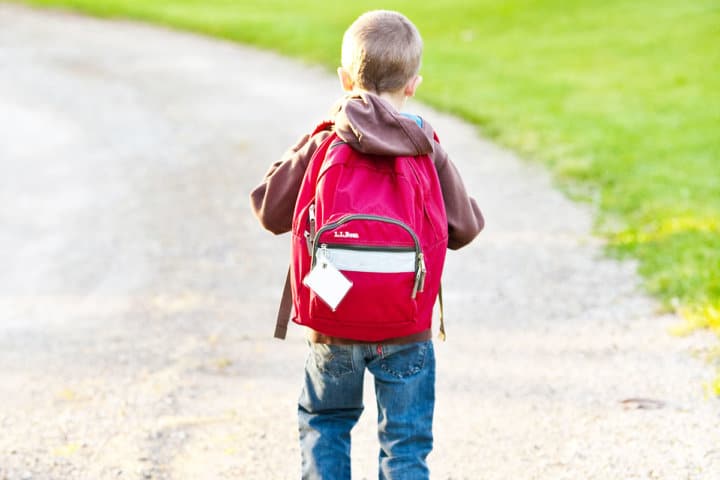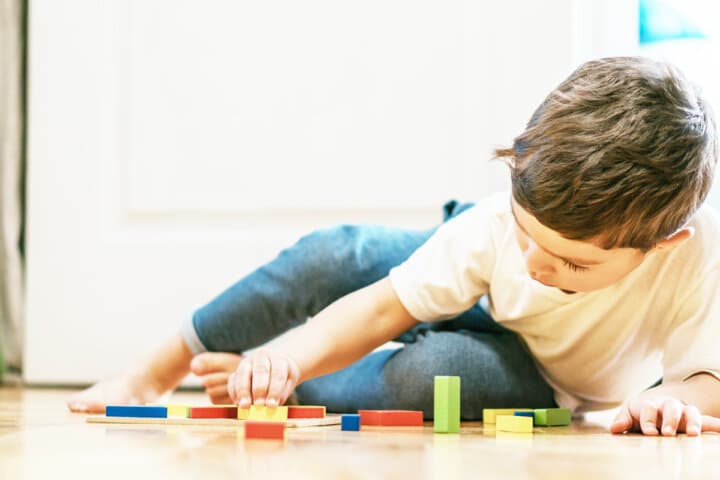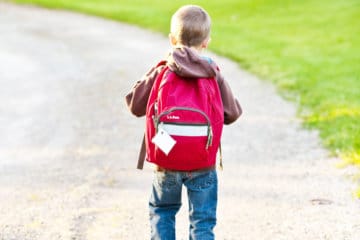Is your child ready for kindergarten? If you are looking for the answer, you have come to the right place!

I have been a pre-k teacher for many years, and I can confidently tell you how to know for sure.
Just keep in mind that every child is different. Some show potential in some areas while others blossom in other areas.
Your child is going to be assessed in all these areas. There is a criterion that needs to be met for your child to enter kindergarten.
In this post, the following will be discussed:
- What is kindergarten readiness?
- When should children be ready for kindergarten?
- Is my child ready for kindergarten?
- Signs your child is not ready
- What should I do if my child is not ready for kindergarten?
- How to choose a kindergarten program?
What Is Kindergarten Readiness?
Kindergarten readiness refers to your child’s developmental level in many areas. It also refers to whether he/she can succeed in kindergarten.
This assessment includes a set of skills that your child must have. Kindergarten programs have different requirements and each state has different criteria so look up your specific program.
Academics do play a role in this readiness but, it is much more than just that. Your child also needs to be ready socially, emotionally, and physically.
Recently, preschools have begun focusing more on academics bringing lessons into circle time, outdoor play, and even during meals. This helps develop children in all domains.
The five domains that are evaluated are language, cognitive skills, mathematics, physical, and social-emotional skills.
When Should Children Be Ready for Kindergarten?

Usually, when children are five years old, they should be ready for kindergarten but each kindergarten is different, so call your program and ask for age requirements.
Many people choose to keep their children for another year in Pre-K. This allows their children to develop more socially and academically. This is called redshirting.
Usually, children who enter kindergarten at the age of six are more ready. However, I personally don’t recommend doing it.
Studies show that it is only beneficial during the elementary period. Studies also show that children who are redshirted have a higher chance of having behavioral problems and may end up leaving school.
The negative aspects outweigh the positives.
Is My Child Ready for Kindergarten?
Your child will be assessed three times when they are in pre-k in the fall, winter and spring – and will be assessed on the following:
1. Physical Development
Are your children capable of hopping, jumping, and balancing?
Are they capable of drawing straight line, circle, the letter x, and the addition sign (+)?
Do they practice a cleanliness routine?
Can they use scissors?
2. Social/Emotional Development
Can your child recognize his/her name, differentiate genders, and identify his/her age? Is he/she able to say his/her parent’s names?
Your child should be able to play with other children, create friendships, take turns, and share.
Expressing emotions with words, asking for needs, and understanding the concepts of manners should be easy.
Your child should also be able to interact with adults, show independence, and listen when others speak.
3. Mathematics
Is your child capable of counting up to 20, measuring things, classifying objects, and knowing one-one correspondence?
Your child should be capable of naming shapes, counting how many objects are in a group, putting things in sequence, and completing simple patterns.
4. Cognitive Development
Your children should show curiosity, be able to concentrate and show persistence.
They should also be able to describe the location of objects using words like between, up, next to, over, under, and down. See if they can match pairs, follow directions with at least two steps and make simple predictions.
They should be capable of differentiating between healthy and unhealthy choices, following safety rules, grouping similar objects together, and imitating others and objects.
Try letting them use materials to create art and see if they are interested in musical instruments.
5. Language Development
Can your child speak in complete sentences?
Identifying most of the uppercase and lowercase alphabetical letters is very important.
They should also be able to engage in conversation and understand that print represents messages and thoughts.
They should be able to retell simple stories and demonstrate an awareness of books.
Signs Your Child Is Not Ready

Apart from looking at the signs that your child is ready to enter kindergarten, here are some signs that maybe it’s not the right time:
- Doesn’t communicate well.
- Isn’t comfortable when you leave.
- Doesn’t get along with others.
- Needs help with a lot of daily tasks.
- Doesn’t know most of the letters and numbers.
- Doesn’t follow directions.
- Is not potty trained.
What Should I Do if My Child is Not Ready for Kindergarten?
Remember, you should assess your child three times during the year before he/she enters kindergarten.
You should use this assessment to know which domain your child needs help with. That domain should be your focus.
Keep practicing and talk to your child’s teacher. If you’re homeschooling, look up activities to do with your children to help them develop thoroughly.
If your child is not ready, maybe it is better to keep your child in pre-k for two years.
How To Choose a Kindergarten Program?
The kindergarten should be accredited. Look for excellent teachers who love what they do.
I recommend visiting the kindergarten and studying the place. This will give you a much better perspective than the internet.
See if the children look busy and engaged. Do the children look happy, and how is play included in the program? Play is very important for education.
Are parents welcomed and were all your questions answered? Are their evidence of learning in the classroom, and are they up-to-date? Is the classroom clean and safe?
Make sure all the teachers are CPR certified and know what to do during emergencies. Your child’s safety comes first!
How do the teachers interact with one another? Do they help one another and communicate? The overall work environment has an effect on teachers. This could affect the way they interact with children so keep that in mind.
Every parent has their own requirements too. Don’t be afraid to ask questions and choose what is best for your family!




Leave a Reply